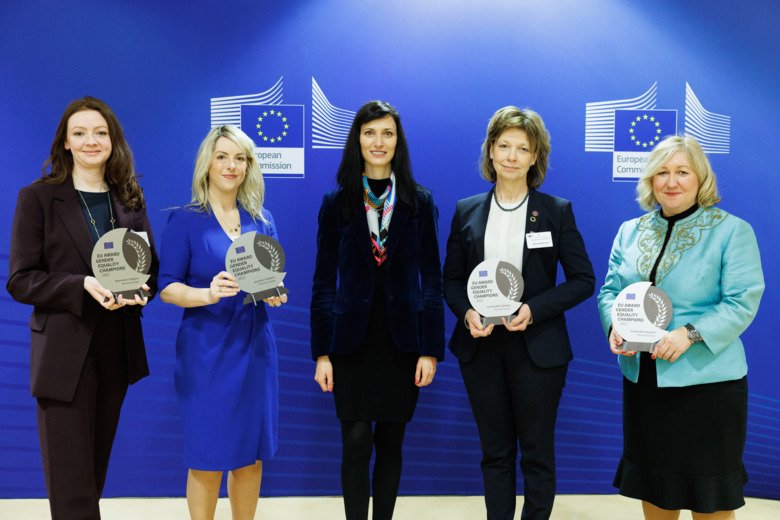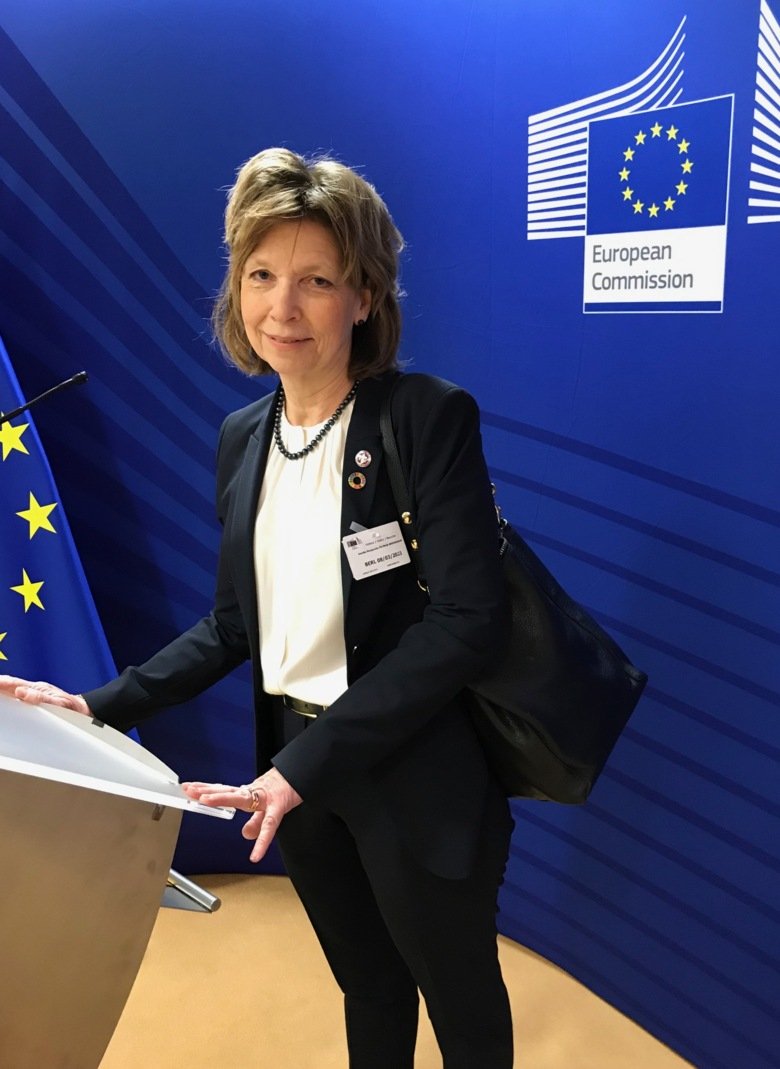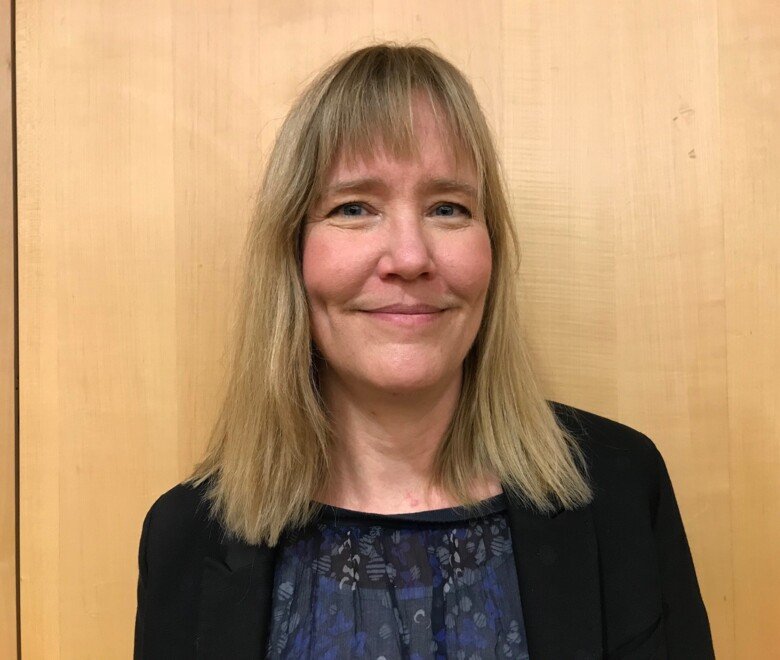KI role model for equality in EU – now awarded for its long-term work

Karolinska Institutet has been awarded a new EU prize for its long-term commitment to gender equality in higher education. The prize of 100,000 euro is the result of nearly 40 years of sustained activity to advance equal opportunities. The efforts have paid off and now KI is recognized as a role model for equality, a “Gender Equality Champion.”

“I’m pleased and honoured that KI has received the award Gender Equality Champions in the EU. The prize is a recognition of the quality of KI’s long-term and significant gender equality and equal opportunities work,” says Annika Östman Wernerson, who was appointed KI’s new president on March 1.
On March 8 – International Women’s Day – she received the award from Mariya Gabriel, EU commissioner for innovation, research, culture, education and youth, during a ceremony in Brussels.
“This also means we have a great responsibility,” she adds. “As the new president, I want to emphasize the importance of us continuing to work with these issues on all fronts in our operations.”
The prize is intended to underscore the importance of equal opportunities in higher education and to inspire universities in Europe to prioritize gender equality work. It was launched last year by the European Research Executive Agency (REA), which is mandated by the EU Commission to support the EU research and innovation policy. The prize winners are selected by an independent expert jury within three categories: Sustainable, Newcomer and Inclusive.
All the prizewinners
- Sustainable Gender Equality Champions: Karolinska Institutet and Trinity College Dublin (Ireland), which have demonstrated “a significant and sustained record of activity and a high level of achievement through the implementation of their gender equality plan.”
- Newcomer Gender Equality Champions: Maynooth University (Ireland), which has “recently started implementing a Gender Equality Plan and can demonstrate the most progress.”
- Inclusive Gender Equality Champions: South East Technological University (Ireland), which has “developed the most innovative inclusive Gender Equality Plan addressing intersections with other social categories” such as sexual orientation and gender identity.
So what has KI done to deserve this recognition?

The story goes way back, according to Klara Regnö, equal opportunities strategist at the Sustainable Development and Equal Opportunities Office. KI appointed the first management team for gender equality in 1986. Two years later, the first Gender Equality Plan was adopted.
Since then, KI has intensified the work with equal opportunities on many levels.
Here are some of the key milestones:
- The gender equality perspective is today an integrated part in everything from overarching strategies to steering documents, and it is the top management that is ultimately responsible for pursuing the work. At the Sustainable Development and Equal Opportunities Office, experts in the field work closely with the top management, other units, students and external parties.
- KI offers substantial equal opportunities training, including workshops and courses, to for example raise awareness about bias in assessment processes and to prevent discrimination and harassment. Equal opportunities are also an integrated part of KI’s education with courses for teachers and supervisors.
- There are structures and regulations to promote an even gender distribution in for example academic elections and in assessment groups, which have contributed to an even distribution of women and men in KI’s decision-making assemblies. KI also aims to increase its share of female professors – last year 43 percent of new professors were women – and recently launched two new initiatives to strengthen women’s career development.
- Researchers are also encouraged to integrate gender in their research grant proposals and are offered support to do so by the Research Support Office.
- On a society level, KI representatives also participate in several international, national and regional networks that aim to strengthen equal opportunities work. KI is also one of the founders of Academic Pride, which calls attention to the importance of LGBTQIA+ issues in higher education, as well as initiator of a research and cooperation program to increase knowledge about gender-based violence in academia.
”It has been exciting and rewarding to be part of driving KI’s development in the gender and equal opportunities area,” says Klara Regnö. “The prize is very gratifying and motivating for our continued work.”
